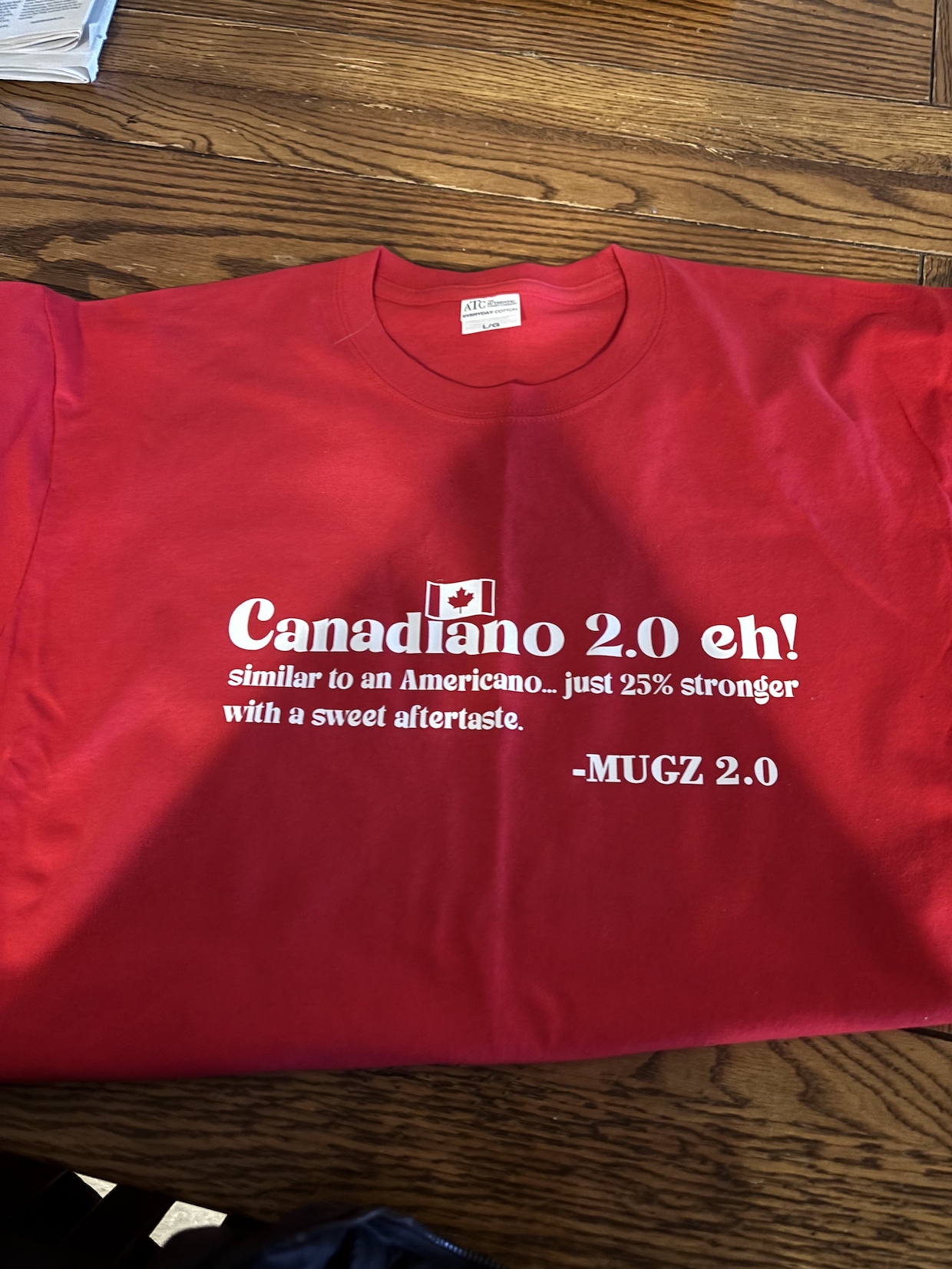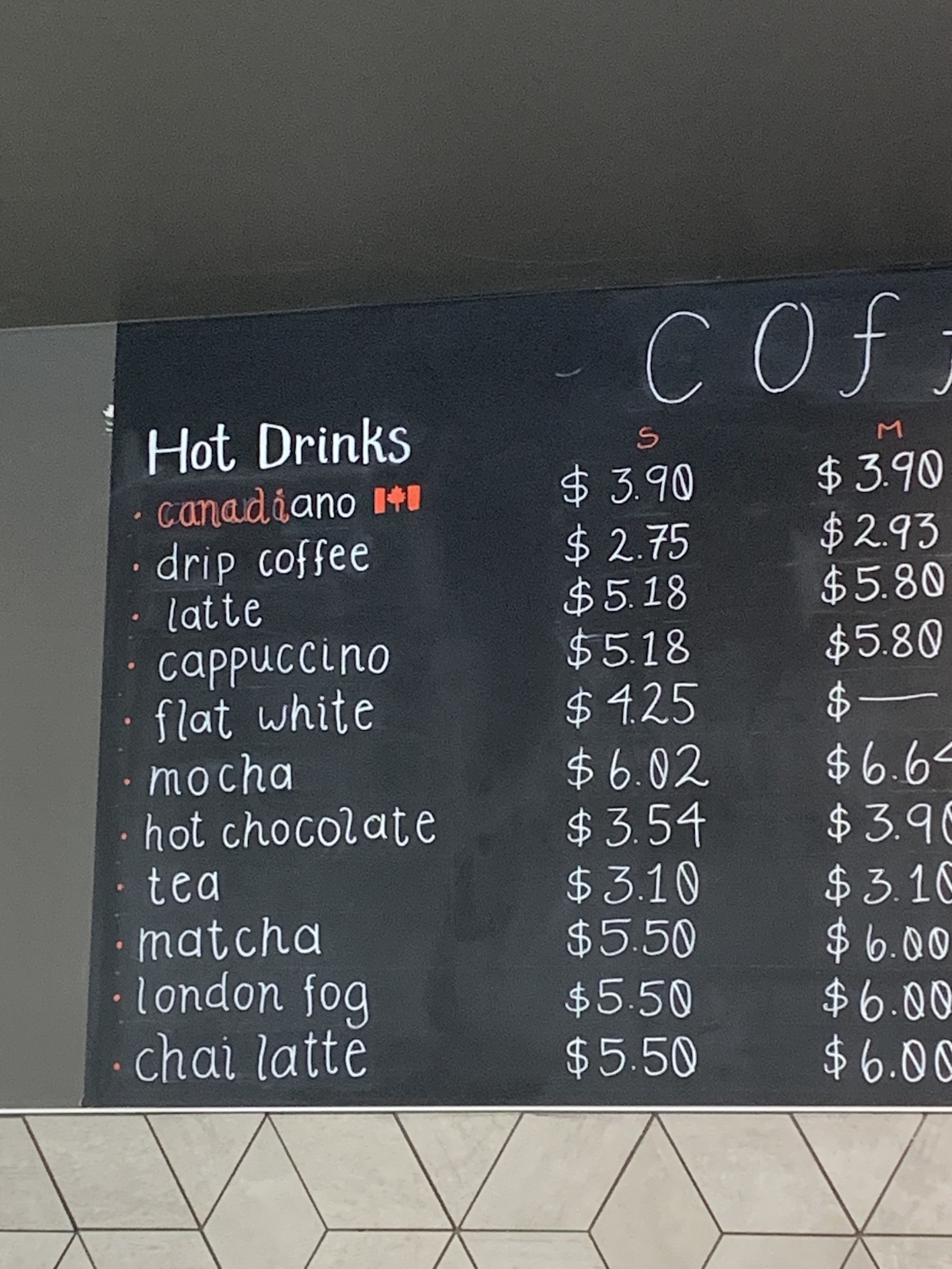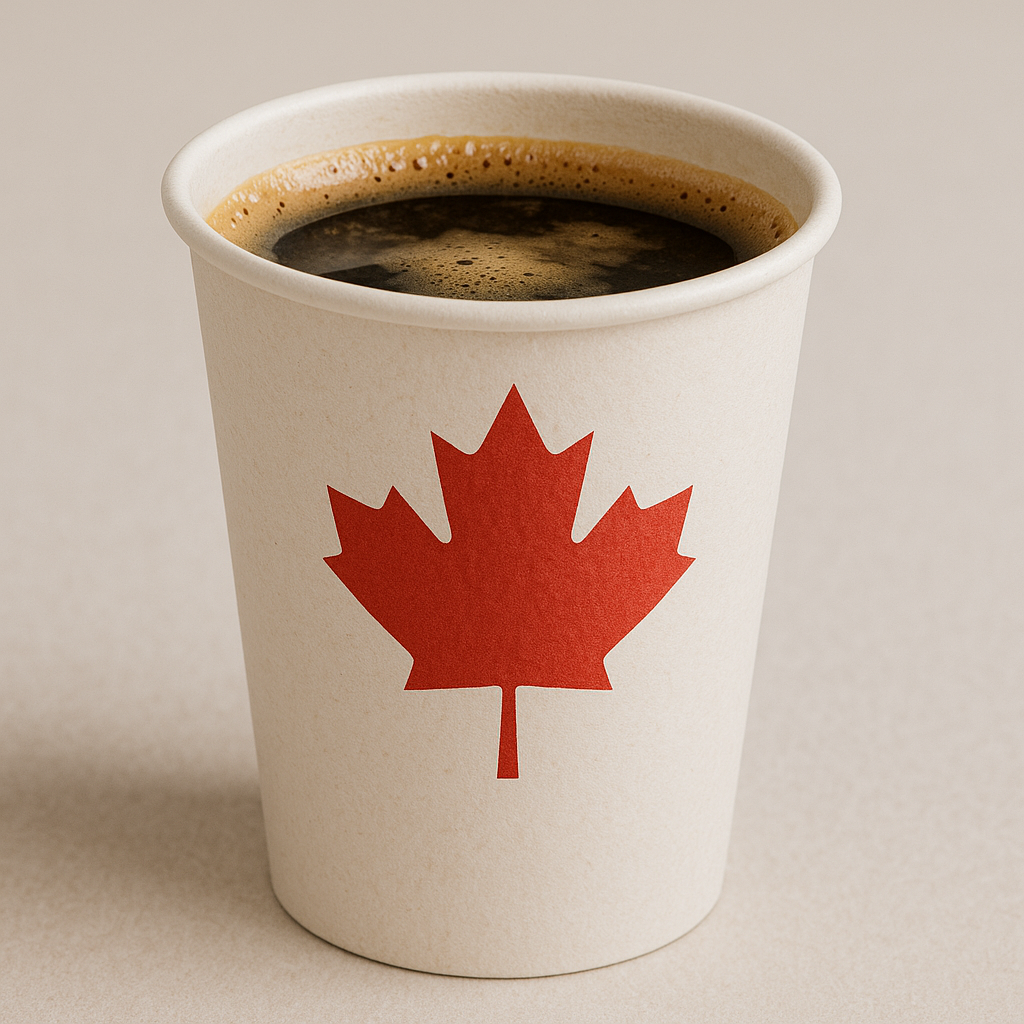On Feb. 5, Invermere, British Columbia-based cafe and roastery Kicking Horse Coffee posted a call to action, urging Canadian coffee shops to rename the Americano as the Canadiano.
“For 16 years, our Kicking Horse Café has been quietly calling Americanos ‘Canadianos,’ the company wrote on Instagram. “Today, we’re officially making it a thing and asking coffee shops across the country to make the switch. Join us. Call them Canadianos. #ItsCanadianoNow”
Arising as a kind of characteristically Canadian polite form of protest against a 25% tariff imposition from United States President Donald Trump, the Canadiano movement was born. DCN recently reached out to four Canadian coffee purveyors who, at least temporarily, made the switch from Americano to Canadiano.
While trade tensions between the two nations remain — as does Trump’s bizarre threat to somehow adopt Canada as a U.S. state — most Canadians still view the movement as a kind of lighthearted act of patriotism. Yet the drink name has also led to increased sales, customer loyalty and some questions as to how far cafes are willing to venture into political territory.
(It’s worth noting that Kicking Horse Coffee and at least one other early adopter of the Canadiano name declined to be interviewed for this story.)
“We made the switch as a fun, light-hearted way to embrace and celebrate our Canadian identity,” Ashley Murdoch, the owner of Café CoCo & Bean in Beaconsfield, Quebec, told DCN. “The ‘Canadiano’ still offers the same smooth, bold coffee experience as an Americano, but with a little local flair. It’s also sparked some great conversations and smiles — exactly the kind of vibe we love at our cafe.”

“Custom-made ‘Canadiano 2.0 eh!’ T-shirts sold at Mugz 2.0 Coffee House. Photo courtesy of Boni Sharpe.”
Boni Sharpe, the owner of Mugz 2.0 Coffee House in Port McNeill, B.C., said the shop replaced the Americano name “without animosity,” while offering 25% discounts on Canadiano drinks. The shop even made a shirt that read, “Canadiano 2.0 eh! Similar to an Americano… Just 25% stronger with a sweet aftertaste.”
While tariffs remain a bitter pill for all consumers to swallow, it seems the Canadianos have been going down smooth.
Todd Simpson, the owner of the Laurier location of Morning Owl in Ottawa, Ontario, said sales of Canadianos doubled those of Americanos over a previous period.
Café CoCo & Bean’s Murdoch said there was a bit of a sales boost following the name change, although time will tell whether it’s sustained. “People are curious to try the Canadiano and it’s become a bit of a novelty,” Murdoch said. “Regulars have embraced it, and new customers are intrigued. It’s been a small but positive shift.”
The shop owners were unanimous in saying that the switch to Canadiano has been viewed positively by their customers — not as a reflection of anti-American sentiment, but more as a point of Canadian patriotism.
“Everybody loves it,” the family behind Luna Crepes & Cafe in Ottawa told DCN in a statement. “Everybody wants to show their [Canadian] belonging and identity.”
Mugz’s 2.0’s Sharpe has found that most customers have been “finding it light” and “usually chuckle about it afterwards.”
Sharpe also stressed that the movement is not rooted in exclusivity, particularly toward Americans. “You’ll always be welcome,” said Sharpe, “no matter what state you’re from.”

New menu at Morning Owl’s Laurier location showing Canadiano deliberately written over Americano. Photo by Daria Toptygina.
Not so lighthearted are the potential impacts of a legitimate trade war with the U.S. on Canadian coffee businesses.
As of mid April, Morning Owl’s Simpson said there were concerns about consumer spending, and how that might trickle down to coffee shops.
“[I’m] not certain how it will impact yet,” Simpson said. “I think everyone is watching what they spend right now for fear of what’s happening. Ottawa’s always sort of been buffered from everything happening in the rest of Canada because of our strong government, but with threats to government spending overall, sales and average sale per customer have dropped incrementally, though foot traffic is pretty much the same.”
Murdoch suggested 25% tariffs could certainly hurt small businesses, particularly those who are forced to rely on foreign-traded goods.
“We always keep an eye on trade relations, especially when it comes to the import cost of coffee beans and other supplies,” Murdoch said. “While we try to source locally and support Canadian suppliers whenever possible, fluctuations in trade or tariffs could eventually affect our prices. So yes, it’s a concern — but one we’re staying proactive about.”
Comments? Questions? News to share? Contact DCN’s editors here. For all the latest coffee industry news, subscribe to the DCN newsletter.
Related Posts
Daria Toptygina
Daria Toptygina is a freelance writer, avid coffee lover and social media manager of Daily Coffee News by Roast Magazine.







Comment